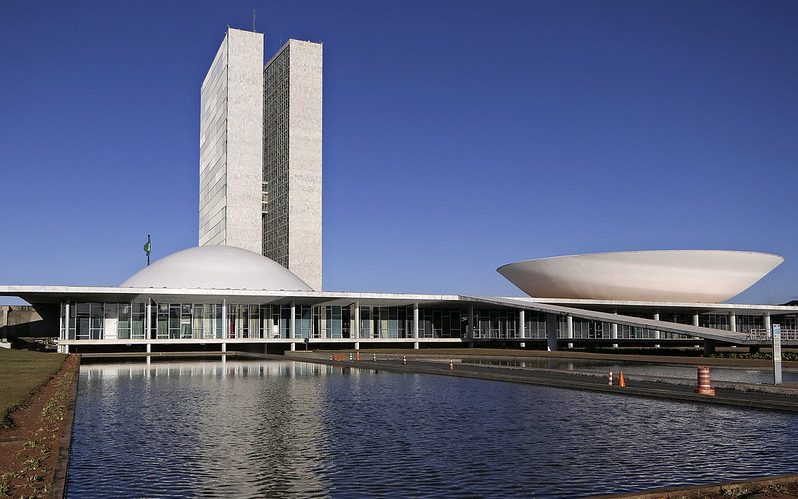The insurrection that took place in Brazil on January 8, 2023, is eerily similar to the attacks on the U.S. Capitol in 2021. Both Trump and Bolsonaro use the same authoritarian playbook that utilises disinformation to mobilise the public.
In October 2022, democracy enthusiasts and close observers of Latin American politics heaved a sigh of relief as far-right authoritarian president Jair Bolsonaro lost his bid for reelection to Luiz Inácio Lula da Silva, more commonly known as Lula.
The victory of Lula, who could not run in the 2018 election as he was in prison for receiving a bribe, was close with 50,4 % of the votes, illustrating the deep divisions the country is facing. Lula called for peace and unity after his narrow win.
Lula’s election success was generally seen as a positive step towards the reinforcement of Brazilian democracy, the representation of the interests of indigenous people and most of all, the protection of the Amazon rainforest. However, the relief over the election outcome was soon overshadowed by worries over the country’s democratic stability. Former president Jair Bolsonaro’s reputation as an authoritarian politician, his tendencies to overlook rules, and his connections to other right-wing populists, above all Donald Trump, caused concerns about whether a peaceful transition to power would actually take place. Fears over whether Bolsonaro learned from Trump’s playbook and would incite an insurrection, just as Trump had on January 6, 2021, turned out to be valid, as the events on January 8, 2023, confirm.
The Trump-Bannon Connection
Since Bolsonaro’s ascend to power, he enjoyed close relations with Trump and Bannon, connections that further legitimised his right-wing authoritarian leadership. He also seemed to have learned from Trump’s rule. Already months leading up to the elections, Bolsonaro repeatedly made false claims about Brazil’s electoral and voting system, stirring up the public and undermining their trust in the elections. He also claimed that hackers tried to steal the previous 2018 election but failed, and warned of a potentially “rigged” 2022 election.
Following his election defeat, Bolsonaro followed the Trump Playbook of refusing to acknowledge defeat, as he had suggested he would, and contesting the election outcome in court. Unwilling to accept the outcome, he previously challenged the results and attempted to overturn the election, which Brazil’s electoral court rejected. As a consequence, doubts ensued whether Lula’s inauguration would take place as planned, or if Bolsonaro would incite an insurrection like Trump had two years prior in the United States.
Nonetheless, the peaceful transition to power from Bolsonaro to Lula successfully took place on January 1st, a relieving sign for observers that Brazil’s democracy is alive and kicking.
And yet, on Sunday, January 8, news broke that protesters made their way to government buildings in Brazil’s capital, Brasilia, and stormed Congress, the Supreme Court and the presidential office, ravaging these places. At that time, no sessions were taking place and President Lula was not in town.
Bolsonaro, who prior to the inauguration of Lula left Brazil for Florida, just as Trump had in 2021 breaking with the American tradition of being present at the inauguration ceremony of the presidential successor, allegedly directed the protests from there. However, he publicly denied any role in the protests and condemned the attacks. Regardless of whether Bolsonaro played an active role in the protests or not, he undoubtedly stirred up the public before and after the elections with endless and unfounded claims that the election was rigged.
What is also remarkable about the insurrection in Brazil and what differentiates it from the one in the United States in 2021 is the fact that the winner, President Lula, was already inaugurated. This made the event all the more worrying, as it was an actual attempt to overthrow a government and a sitting president.
Submit here
Commonalities and differences aside, perhaps most concerning about the insurrection in the United States and in Brazil is the clear demonstration of how the act of the far-right in one country can motivate similar actions in another. Moreover, it illustrates a common denominator in both acts: Steve Bannon and his strategies.
Bannon, who helped Trump win the 2016 election and later became a White House Chief Strategist, is known for spreading disinformation and false claims. In a leaked audio obtained by Mother Jones, Bannon allegedly stated days before the 2020 election that Trump would claim victory no matter the actual election outcome. This strategy of falsely declaring victory “would lead to widespread political violence, along with “crazy” efforts by Trump to stay in office”, as predicted by Bannon. Trump’s election loss in 2020 indeed followed this playbook, as we have seen: Trump declared victory, despite having lost the election, and refused to accept his defeat. He used every opportunity to falsely claim that the election was rigged and that he was the true winner. And helped incite an insurrection, leading to the violent storming of the U.S. Capitol on the day Congress was supposed to certify the election of Joe Biden as the next president and nearly overturning American democracy.
And now, Steve Bannon, by claiming that Lula had lost the election, uses the same strategy to undermine democratic election results in Brazil. Online, he cheered for the Brazilian insurrectionists who stormed government buildings on January 8, even calling them “Freedom Fighters”.
On Brazilian social media sites, #StoptheSteal has also been promoted by American figures like Bannon. As noted by Anne Applebaum, English hashtags like #BrazilWasStolen and #BrazilSpring were trending, as if pushed by American marketing and public relations companies. It is thus not far-fetched to acknowledge the role Bannon and other American far-right activists played in the insurrection that took place outside of their own country.
The events leading up to the riots in Brazil as well as the protests themselves demonstrate the disregard for democracy and democratic processes Bannon and people like him share and their absolute belief that what had happened two years ago in America was just, and should be replicated in other countries. It also exemplifies that this “strategy” can serve as a template for undemocratic uprisings and violent attempts to overturn democracy in other nations.
Perhaps most importantly, as Applebaum suggests, it is the power of example that could be the real reason for America’s influence on and the emergence of such copycat actions – now in Brazil and maybe soon also in other places. It is therefore vital to show that these acts will fail and bear consequences for individuals, to prevent extremists in other countries to follow suit. But for that, curbing the flow of disinformation online is also vital.
The Disinformation-Polarisation Nexus
As the insurgencies at the United States Capitol in 2021 and in Brazil in 2023 have shown, increasing polarization, fed by disinformation and the deliberate spread of fake news bear detrimental consequences for democracies around the world.
Already before the 2022 elections, experts and disinformation researchers warned about their imminent threat to Brazil’s democratic process and the likelihood of large-scale protests in the aftermath of the election.
In a highly polarized and divided nation, similar to the United States, Brazil’s presidential candidate Lula’s close victory underlines the divide the country faces and forecasted a challenging transition of power from Bolsonaro, who questioned election integrity already months prior.
Mix this with loosely regulated social media platforms that allow the reckless spread of disinformation and conspiracies, amplifying the reach thereof, and the chaos is predestined. The falsehoods circulated on these platforms further polarise societies by inciting two opposing sides.
Just as in the January 6 storming of the Capitol in the United States, the internet and social media in Brazil have been used to mobilize large groups of people who believe in the lies spread by a few. There is no doubt that the same disinformation playbook will be utilised again and again to stir political unrest in other countries, too.
While those spreading falsehoods about democratically legitimate elections need to be held accountable to stop the power of example, huge platforms such as Telegram, Facebook, and Twitter, also need to step up their game and take their role in the protection of democratic processes seriously. Given the unlikelihood of right-wing platforms like TruthSocial acting responsibly and curbing the flow of fake news, the “mainstream” social media’s role becomes all the more important. They play a crucial part in the fast detection and removal of false information online and the blocking of accounts that spread disinformation. Thus, their role in helping prevent the spread of disinformation should not be overlooked.
Without active regulation and content moderation on these platforms, disinformation on elections will continue to spread in the future and polarise populations. This makes it difficult, if not impossible, for democracies to work as they should and allow for the necessary peaceful transition of power from one politician to the next.








Be First to Comment